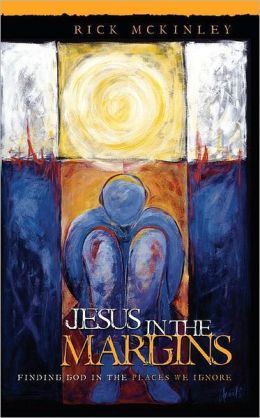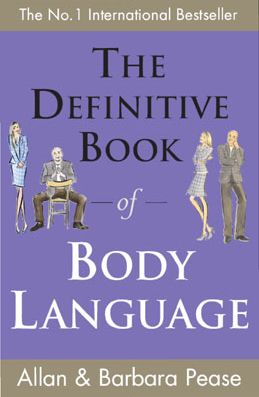The following is an excerpt from the book I'm currently reading called
Waking the Dead by
John Eldredge, pp. 75-79. This part is really significant for me as I've been through this thinking a lot in the past.
In an attempt to explain the biblical doctrine of sin, we've let something else creep in. You'll hear it come up almost automatically whenever Christians talk about themselves: "I'm just a sinner, saved by grace." "I'm just clothes for God to put on." "There sure isn't any good thing in me." It's so common a mind-set, this idea that we are no-good wretches, ready to sin at a moment's notice, incapable of goodness, and certainly far from any glory.
It is also unbiblical.
The passage people think they are referring to is Romans 7:18, where Paul says, "For I know that in me (that is, in my flesh,) dwelleth no good thing" (KJV). Notice the distinction he makes. He does not say, "There is nothing good in me. Period." What he says is that "in my flesh dwelleth no good thing." The flesh is the old nature, the old life, crucified with Christ. The flesh is the very thing God removed from our hearts when he circumcised them by his Spirit.
Yes, we still battle with sin. Yes, we still have to crucify our flesh on a daily basis. (But) does the Bible teach that Christians are nothing but sinners—that there is nothing good in us? The answer is no! You have a new heart. Your heart is good. That sinful nature you battle is not who you are. Twice, in the famous chapter of Romans 7, where Paul presents a first-person angst about our battle against sin, he says, "But this is not my true nature. This is not my heart."
As it is, it is no longer I myself who do it, but it is sin living in me. I know that nothing good lives in me, that is, in my sinful nature . .. Now if I do what I do not want to do it is no longer I who do it, but it is sin living in me that does it . . . For in my inner being I delight in God's law. (emphasis added)
Paul is making a crucial distinction: This is not me; this is not my true heart. Listen to how he talks about himself in other places. He opens every letter by introducing himself as "Paul, an apostle." Not as a sinner, but as an apostle, writing to "the saints." Dump the religiosity; think about this mythically. Paul, appointed as the Great One in the kingdom, writing other Great Allies of the kingdom. How bold of him. There is no false humility, no groveling. He says,
Surely you have heard about the . . . grace that was given to me for you, that is, the mystery made known to me by revelation, as I have already written briefly. In reading this, then, you will be able to understand my insight into the mystery of Christ, which was not made known to men in other generations as it has now been revealed [to me].
Paul is not unashamed to say that he knows things no man before him knew. He even assumes they've heard about him, the mysteries revealed to him. That is part of his glory. His humility comes through clearly, in that he quickly admits that it’s all been a gift, and in fact, a gift given to him for others.
And listen to the way he talks about us: "You shine like stars in the universe as you hold out the word of life." As Shawn Mullins sings, "we're born to shimmer; we're born to shine." You are supposed to shimmer. "Let your light shine before men." All this groveling and self-depreciation done by Christians is often just shame masquerading as humility. Shame says, "I'm nothing to look at. I’m not capable of goodness." Humility says, "I bear a glory for sure, but it is a reflected glory. A grace given to me." Your story does not begin with sin. It begins with a glory bestowed upon you by God. It does not start in Genesis 3; it starts in Genesis 1. First things first, as they say.
Certainly, you will admit that God is glorious. Is there anyone more kind? Is there anyone more creative? Is there anyone more valiant? Is there anyone more true? Is there anyone more daring? Is there anyone more beautiful? Is there anyone more wise? Is there anyone more generous? You are his offspring. His child. His reflection. His likeness. You bear his image. Do remember that though he made the heavens and the earth in all their glory, the desert and the open sea, the meadow and the Milky Way, and said, "It is good," it was only after he made you that he said, "It is very good." Think of it: your original glory was greater than anything that's ever taken your breath away in nature.
As for the saints who are in the land, they are the glorious ones in whom is all my delight.
God endowed you with a glory when he created you, a glory so deep and mythic that all creation pales in comparison. A glory unique to you, just as your fingerprints are unique to you, just as the way you laugh is unique to you. Somewhere down deep inside we've been looking for that glory ever since. A man wants to know that he is truly a man, that he could be brave; he longs to know that he is a warrior; and all his life he wonders, "Have I got what it takes?" A woman wants to know that she is truly a woman, that she is beautiful; she longs to know that she is captivating; and all her life she wonders, "Do I have a beauty to offer?" The poet Yeats wrote,
If I make the lashes dark
And the eyes more bright
And the lips more scarlet
Or ask if all be right
From mirror after mirror
No vanity's displayed:
I’m looking for the face I had
Before the world was made.
("Before the World Was Made" from the poem "A Woman Young and Old")
Yes, that’s it. When you take a second glance in the mirror, when you pause to look again at a photograph, you are looking for a glory you know you were meant to have, if only because you know you long to have it. You remember faintly that you were once more than you have become.
# posted by

@ 3:33 PM --->
|

 @ 3:33 PM --->
@ 3:33 PM ---> 














